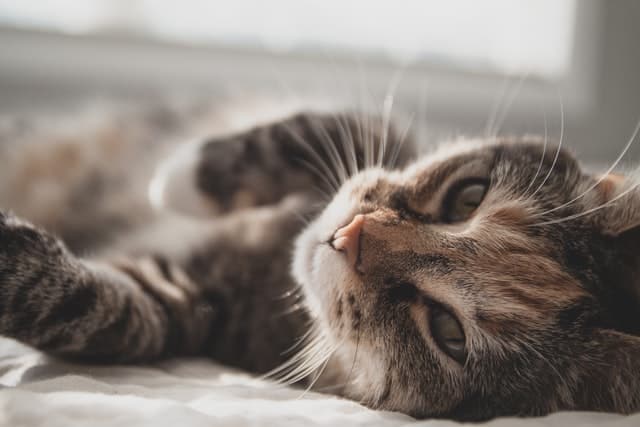
Meningitis in cats occurs when the meninges become inflamed. Often, older cats or cats with weakened immune systems are the most affected. Let’s go to recognize the causes, symptoms, therapy and life expectancy.
We talk about meningitis when a cat’s meninges become inflamed. They are an envelope of the brain and spinal cord and have a protective barrier role. Inflammation of the meninges often leads to a secondary infection of the brain and / or spinal cord, which can lead to various neurological complications.
Symptoms
Unfortunately, the neurological symptoms generally associated with meningitis such as limited ability to move, aggression of cats mainly and convulsions (which can be severe and can become more severe as the disease progresses), are not the only ones.
Other recognized symptoms in cats with meningitis are:
- depression
- shock
- Low blood pressure
- fever
- vomiting of cats
- Abnormal increase in sensitivity to various stimuli (hyperesthesia)
Causes of meningitis in cats
The most common cause of meningitis is a bacterial infection in the brain and / or spinal cord that arises from other parts of the body. Infection can arise from multiple conditions. Dangerous mostly in kittens and cats with weakened immune systems, such infections often reach the brain and spinal cord via the blood.
Other causes of meningitis are:
- already weakened cat’s immune system
- after cryptococcosis, histoplasmosis and blastomycosis infections
- A protozoal infection called toxoplasmosis in cats
- Feline Infectious Peritonitis (FIP)
- In rare cases, the infection present near the cat’s eyes, ears and nose reaches the brain.
Diagnosis of meningitis in cats
To be able to make a more accurate diagnosis, the vet needs a complete history of the cat’s health, accurate knowledge of the onset of symptoms and how the disease has manifested itself. Subsequently, the doctor will perform a complete chemical-physical examination and several laboratory tests.
These include:
- complete blood count
- the biochemical profile of blood culture
- urinalysis
These laboratory tests allow you to recognize and separate the type of infection.
The biochemical profile may indicate the possible involvement of other organs such as the liver and kidneys. Cat blood tests can show an increase in the number of white blood cells, which are a sign of a persistent infection, while cat urinalysis can also reveal pus and bacteria in the cat’s urine and therefore a tract urinary infection.
Other diagnostic techniques generally used to identify infection are:
- magnetic resonance imaging (MRI)
- abdominal ultrasound
- chest and abdomen radiographs
- samples of skin, eyes and nasal secretions
Although one of the most important diagnostic tests remains the CSF analysis (Cerebrospinal Fluid Analysis). A CSF sample is taken from the cat and sent to a laboratory for cultivation and further evaluation.
Treatment
In more severe cases of meningitis, the cat is detained in the veterinary clinic to prevent further, more serious complications. Once the infection is identified, the vet uses medications such as intravenous antibiotics which make treatment more effective. Antiepileptics and corticosteroids, on the other hand, can be prescribed to control seizures and reduce inflammation.
These types of medications can also be given for a long time, if severe and irreversible damage to the cat’s nervous system has occurred due to long-standing inflammation.
As for cats that are already severely dehydrated, they are subjected to washing therapy as soon as possible.
Life expectations
The quickest and most aggressive treatment of the infection is essential for a successful outcome. Their effectiveness depends on many factors and the general prognosis is often not favorable. Unfortunately, despite treatment, many cats die from this type of infection as soon as it reaches the central nervous system.
However, if treatment is successful, it may take more than four weeks for all symptoms to resolve. Meanwhile, the cat’s activity should be limited during this period and until stabilization.
Overall, your cat’s recovery from meningitis will depend on your consistency in your veterinarian’s care and treatment program for your cat.
Prevention

In case your cat has ear, eye and / or nose infections to clean as soon as possible, to avoid the spread of these infections to the nervous system.






